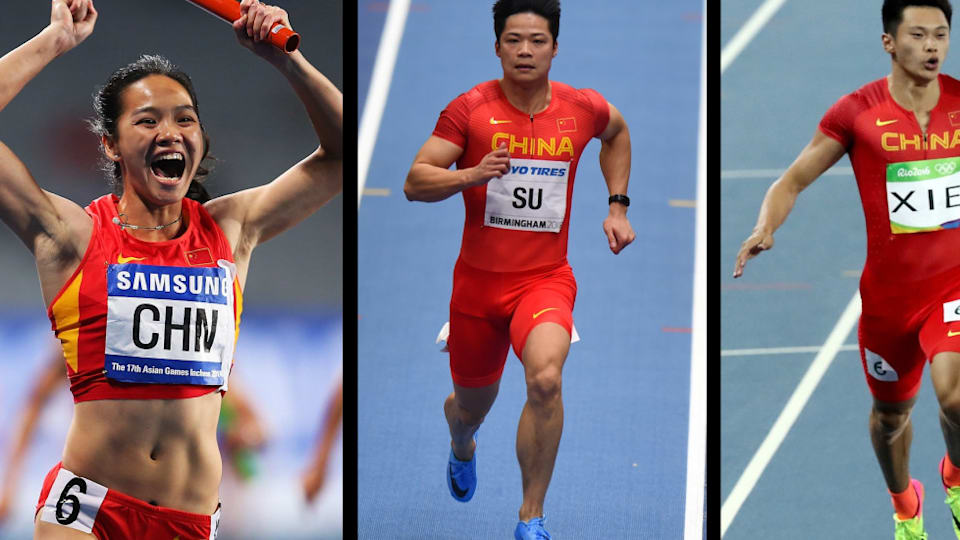
Su Bingtian, Xie Zhenye and Wei Yongli are changing the face of sprinting.
Bingtian is currently the fourth fastest in the world over 100m in 2018, with an Asian record of 9.91 seconds.
Zhenye has posted the second-fastest Asian time of 9.97 seconds.
Meanwhile on the women’s side, Yongli has broken the 11-second barrier and is currently the 11th fastest 100m runner in the world.
A New Kind of Success
In years gone by, Chinese sprinters challenging for top honours would have been an alien concept.
China was renowned for its rich heritage of success in sports like gymnastics, table tennis, weightlifting and diving.
However, it was a very different story when it came to sprinting.
In 35 years of IAAF competition, hurdler Liu Xiang was the only Chinese track athlete to medal in an event below 1500m.
The only other exception being the silver medal won by the men’s 4x100m team at the 2015 Beijing World Championships.
Bingtian and Zhenye were part of that quartet, who made the world take notice of the improvement in China.
Many onlookers mostly attributed the victory to good fortune (through disqualifications) and home advantage.
However, fast-forward three years and that silver medal has proved to be a catalyst, rather than a one-off.
The Bingtian Bullet
But it is in 2018 that Bingtian has really excelled.
He took 60m silver in the world indoor champs in Birmingham, followed by his Asian record 100m time of 9.91 seconds in Madrid.
Another new string to Bingtian’s bow however is consistency.
The fact that he was able to repeat his PB in the recent Paris Diamond League suggests that there is much more to come from the twenty-eight-year-old.
Xie Zhenye's Big Breakthrough
While Bingtian has been an established name on the sprint scene for some time, Zhenye’s emergence has been rather more conspicuous.
Prior to his national record (which was subsequently broken by Bingtian), the 24-year-old was barely known.
Zhenye aspired to become a table tennis star at school, until a PE teacher persuaded him to swap the bat for the starting blocks.
After showing promise, the national federation sent the sports psychology student to train under Rana Reider in the Netherlands this year.
The move helped Zhenye break the 10-second mark.
It is social factors, like this decision to train internationally, that Zhenye believes are behind his country’s rapid improvement on the track.
“The rapid development of China’s society and construction of the sports system, a better training environment, and also the athletes are helping move each other forward.” – Xie Zhenye, Spikes.
Yongli's Rise to the Top
Yongli started training as a full-time athlete in her late teens.
Keen to make up for lost time, she enlisted Tian Yumei to coach her, and the results were almost immediate.
The renowned former sprinter helped bring Yongli’s 100m time down to 11.24 seconds.
But the 11-second mark was broken this year under the guidance of Reider in the Netherlands.
Asian Games Ambition
The real litmus test for the trio may come in August at the 2018 Asian Games.
Victory at the event will prove that they can replicate their best form on the big stage.
Winning in **Indonesia **will also provide a significant psychological boost in the run up to Tokyo 2020.
In Japan the sprinters will be hoping to break new ground by winning individual Olympic sprinting medals for their country.
But regardless of the end result, it seems certain that sprinting excellence in China is here to stay.
